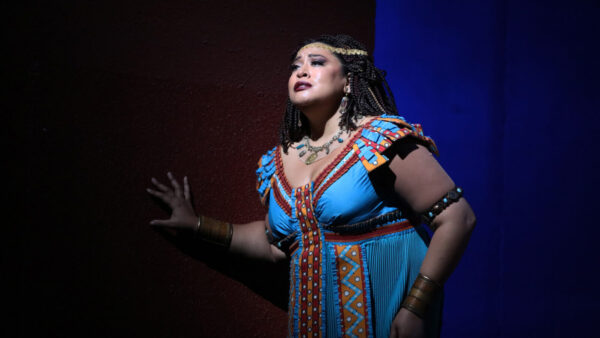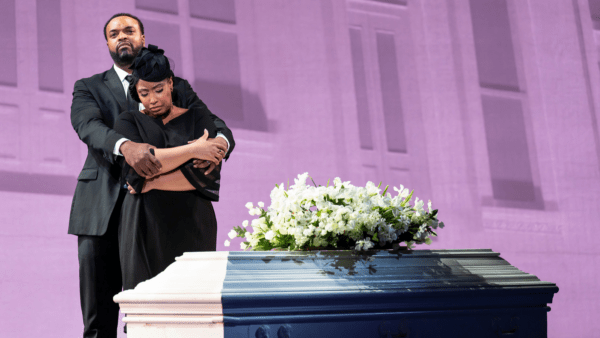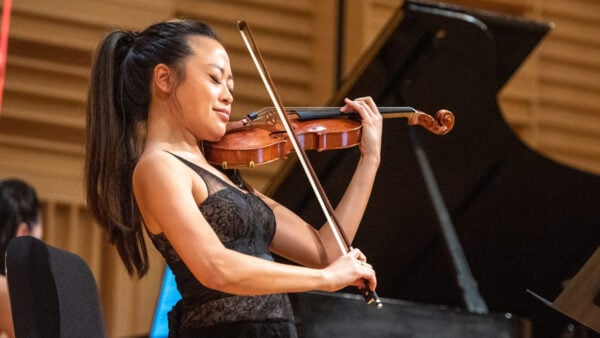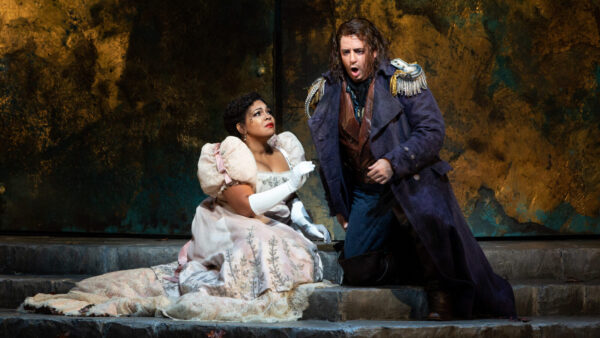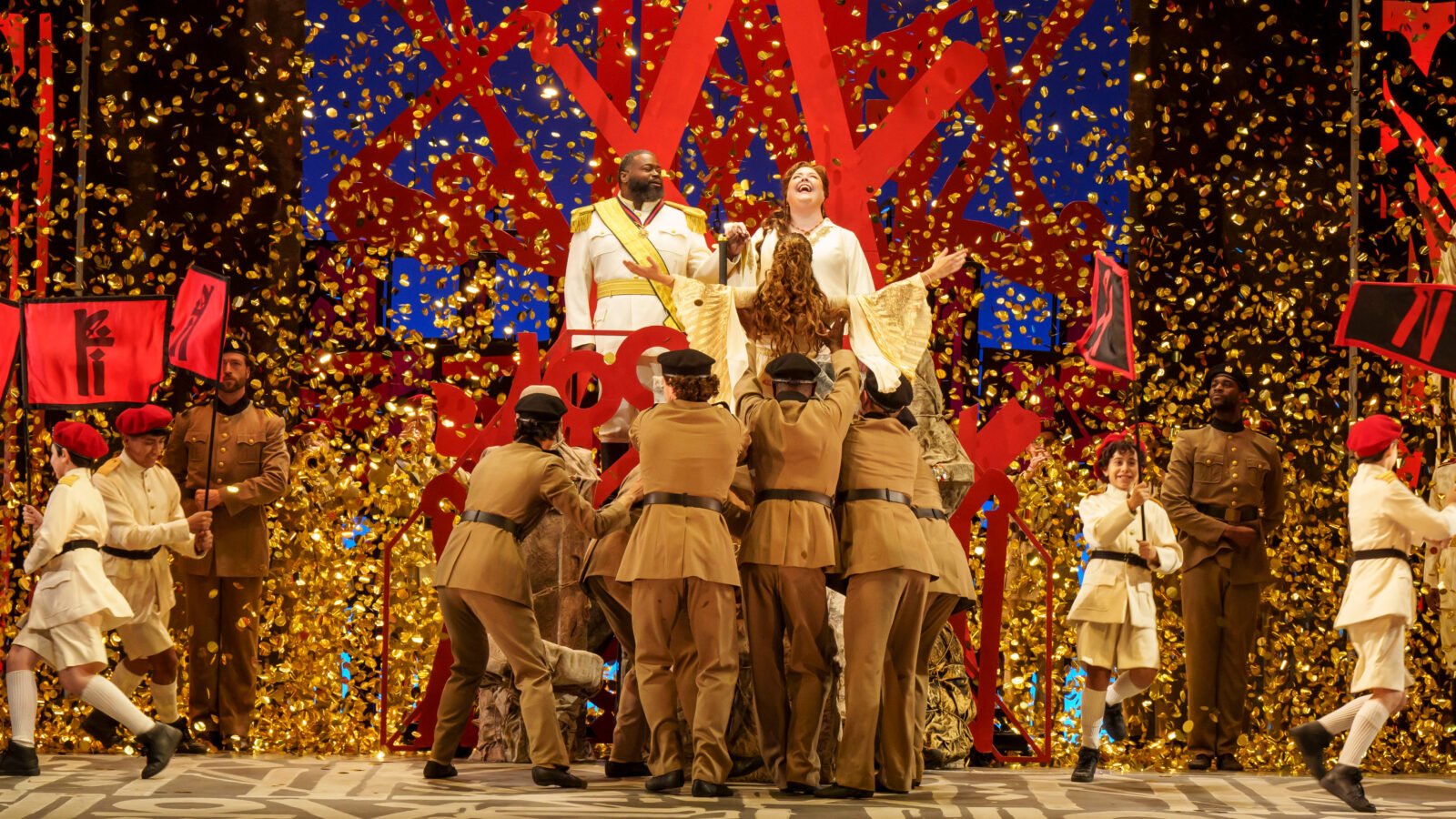
Russell Thomas (L, Radamès), Jamie Barton (R, Amneris), and the company of Lyric Opera’s Aida (Photo: Todd Rosenberg)
Jamie Barton has been performing at Lyric Opera of Chicago, which she describes as a “home house,” for more than a decade, since her second season as a professional opera singer. It’s a stage that has seen her artistry and career grow profoundly.
The celebrated mezzo-soprano is back at Lyric to close out the season with one of opera’s grandest works — a production of Verdi’s Aida that also stars Michelle Bradley in the title role and Russell Thomas as Radamès.
With a grin, Barton shares, “I am so happy to be here doing this one. It’s a good one.”
From a musical and dramatic standpoint, this work is no small undertaking. For the second time in her career, Barton plays Amneris, the entitled, duplicitous, yet tragic foil to Aida. The character has taken some time to grow on Barton, and embodying Amneris can be a challenge. As the artist reflects, “While I wouldn’t hang out with Amneris in real life, it’s a fascinating study of character.”
Safe to say, it’s a challenge the mezzo is up for.
While in town, Barton will also do her part to foster growth in other artists, leading a Master Class at Northwestern University’s Bienen School of Music.
So, as she returns to Lyric and takes on Amneris for the second time, WFMT checked in with Jamie Barton on growing as an artist and the richness of Verdi.
WFMT: How does it feel to return to Aida?
Jamie Barton: It feels really nice. I like this production a lot. There is a modernizing aspect to it that kind of reminds me of Bridgerton in a way. It’s not set in one particular time, it’s just the structure of “we have one society versus another.” Which I think is incredibly timely.
It’s also so great to be back at the Lyric. I love this place. The cast is full of a bunch of colleagues and friends. It’s a joyous and comfortable way to be doing this particular juggernaut of a show.
WFMT: What’s it like to step back into this character?
Barton: This is only the second Aida I’ve ever done, but I can answer that question broadly. Every time I get to do another production of a show, I get to know another facet of the characters.
I have discovered new things about Amneris during this production. Massively, honestly!
Amneris is not someone I identify with personally, and if I’m being honest, I don’t think she would be in my friend group. Who she is as a human being — regardless of how she got there — is just not my vibe. What if you come into this life with all the privileges, none of the consequences… and no hook into empathy? What happens if you make every worst decision?
As an actor, I firmly believe it is my responsibility to advocate for the character I am singing, to not go on stage thinking, “this is a terrible person.” Because when Amneris is living her life, she’s not thinking that!
I can’t necessarily say that I love her, but through this particular production, I feel an honest in-road to understanding how a person can behave like she behaves. It’s a labor of love, but it’s also a labor of curiosity.
WFMT: And does that understanding deepen even over the course of the run?
Barton: Yes. Because every time we’re out there doing this, it’s not the overarching story. Every single one of us on stage is micromanaging every millisecond of what’s going on. A lot of it is the singing, but a lot of it is the storytelling. Connecting the music written below me with the psychology to the words I’m singing.
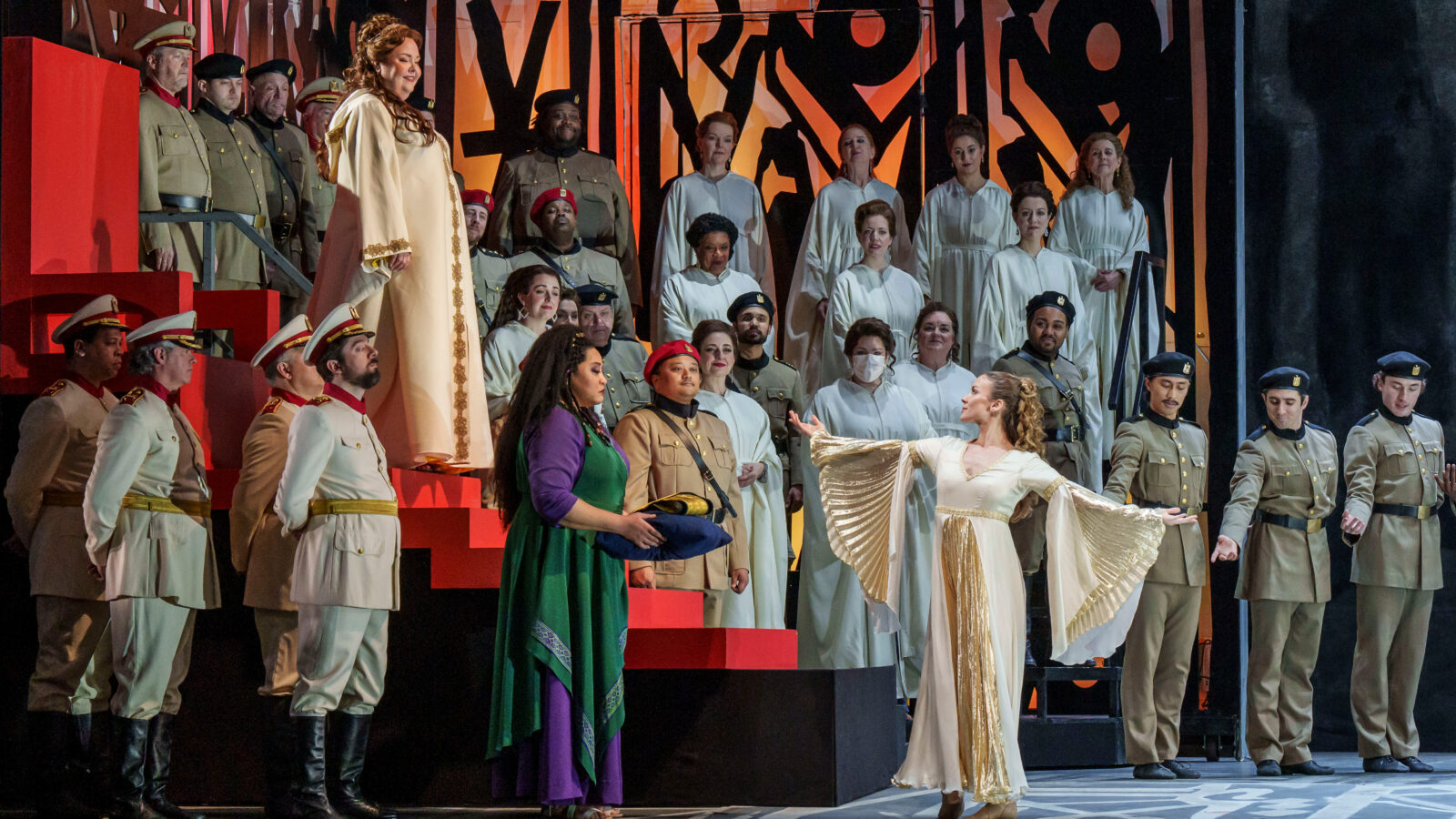
Jamie Barton (Amneris), Michelle Bradley (Aida), and the company of Lyric Opera’s Aida (Photo: Todd Rosenberg)
I do this with characters I’ve been singing for years and years. That’s one of the things I love about getting the chance to do these over again. There’s no amount of thought experiments I can do on my own that will equal being in the character on the stage doing it right then and making the choices in the character’s mindset. There’s something very clarifying about that.
WFMT: In terms of growth, how does a master class lend clarification and perspective as an artist?
Barton: Doing a master class, especially as a college student, is a vulnerable experience. I know that for having done them myself. And I can say on the other side of it, it’s unnerving for the teacher as well!
We have 15 to 20 minutes per student. My job is to get in there, identify some things that I think we can work on, rather than set up large ideas that we wouldn’t be able to tackle in that time.
I’m certainly not showing up to teach them this or that no matter what. I try to say at least once during the master class: “I’m going to give you suggestions. Try it. If it works, fabulous… If it doesn’t let it go in one ear, out the other. That’s ok.” My word is not law. It’s just my suggestion.
I think changing the context from “you’re performing in front of your peers and an opera-famous person judging you and telling you to change things,” and instead putting it into “we are in this together, we have similar goals, let’s just nerd out together,” that usually tends to take down the nerves a little. Then we can get some work done.
I love master classes! It’s an incredibly vulnerable and precious experience, and I think I learn so much as well.
WFMT: When it comes to seeing Aida and other Verdi operas, it’s clear that audiences are just as ready to nerd out about music! What is it about this title that continues to speak to us?
Barton: It’s hard to deny the power of a piece written by a composer who truly understands storytelling. And then to have a story of such magnitude that comes with such consequences.
This is a tra-ge-dy. It’s not going to go right in the end. And that’s hard. It’s hard to wrestle with as an audience member, and it’s hard to wrestle with onstage, too.
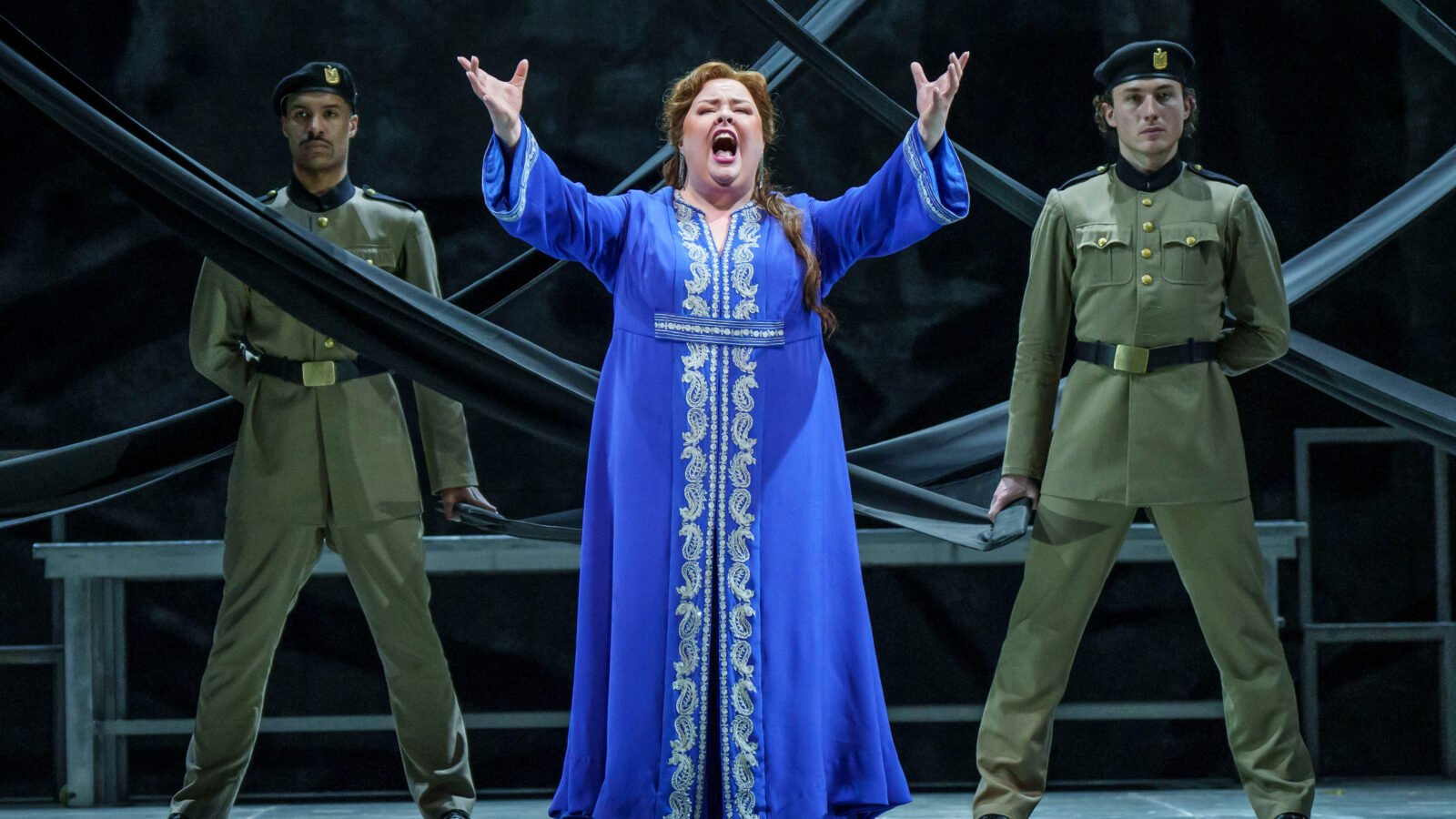
Jamie Barton (Amneris) and the company of Lyric Opera’s Aida (Photo: Todd Rosenberg)
It’s a time for empathy and reflection. The combination of Verdi’s setting — world-changing in the context of opera — with these themes that really do go to the core. Not just war, not just love, but community. What is otherness? What is the human experience of having jealousy coursing through you to the extent that you can’t feel anything else? What happens when a theocracy gets super nationalistic? These are themes that are all within Aida that can resonate on very personal levels.
Maybe it’s the hope of making better decisions, of reaching less tragic ends, that has us hooked in, too.
Aida runs at Lyric Opera of Chicago through April 7. For ticketing and information, visit lyricopera.org. This interview has been edited for length and clarity.


